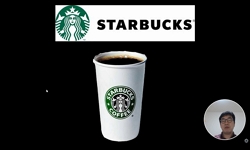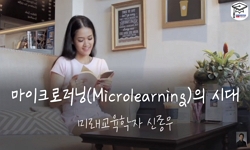The purpose of this study was to apply the map AI chatbot developed in the first year as a continuous task, to the field classes of elementary school social studies in the second year, and to verify the results. As a result of qualitative verification...
http://chineseinput.net/에서 pinyin(병음)방식으로 중국어를 변환할 수 있습니다.
변환된 중국어를 복사하여 사용하시면 됩니다.
- 中文 을 입력하시려면 zhongwen을 입력하시고 space를누르시면됩니다.
- 北京 을 입력하시려면 beijing을 입력하시고 space를 누르시면 됩니다.

초등 사회과 마이크로러닝을 위한 챗봇의 현장 수업 적용 및 검증 = The Application of Map AI Chatbot Class for Micro-learning in Social Studies
한글로보기https://www.riss.kr/link?id=A108193128
-
저자
황홍섭 (부산교육대학교)
- 발행기관
- 학술지명
- 권호사항
-
발행연도
2022
-
작성언어
Korean
-
주제어
사회과교육 ; 마이크로러닝 ; 마이크로콘텐츠 ; 챗봇 ; 지도 AI 챗봇 ; Social Studies Education ; Micro-learning ; Micro Content ; Chatbot ; Map AI Chatbot
-
등재정보
KCI등재
-
자료형태
학술저널
- 발행기관 URL
-
수록면
69-94(26쪽)
-
KCI 피인용횟수
0
- 제공처
- 소장기관
-
0
상세조회 -
0
다운로드
부가정보
다국어 초록 (Multilingual Abstract)
However, in the micro-learning era, the map AI chatbot was developed, designed, and implemented enabling the answering of questions with connected micro-content that summarizes the core, and selects the elements of segmented map learning well. Learners can learn customized learning through self-directed problem solving, participation and learning-centered learning, regardless of time and space, timely, and learning-oriented learning through intelligent map AI chatbot. The map AI chatbot could play a role as an effective assistant teacher and assistant textbook for self-directed personalized learning. In particular, the map AI chatbot is powerful knowledge that allows learners to construct practical knowledge through practical problem solving in life, through conceptual understanding of maps, as well as familiarity with map usage and a connected understanding between map learning elements role as a supplier. In particular, the understanding of AI emphasized in the fourth industrial revolution was increased through the map AI chatbot, and through map learning, it was possible to understand the region more deeply. The quantitative verification results applied to the field classes of the map AI chatbot show significant results on learning satisfaction and academic achievement between the control group and the experimental group. It could be seen that the role was sufficiently performed as an edutech that comprises knowledge.
The purpose of this study was to apply the map AI chatbot developed in the first year as a continuous task, to the field classes of elementary school social studies in the second year, and to verify the results. As a result of qualitative verification applied to the field class of the map AI chatbot, the existing map learning had many major concepts and sub-elements, so it was difficult to learn systematically in the form of segmented content.
However, in the micro-learning era, the map AI chatbot was developed, designed, and implemented enabling the answering of questions with connected micro-content that summarizes the core, and selects the elements of segmented map learning well. Learners can learn customized learning through self-directed problem solving, participation and learning-centered learning, regardless of time and space, timely, and learning-oriented learning through intelligent map AI chatbot. The map AI chatbot could play a role as an effective assistant teacher and assistant textbook for self-directed personalized learning. In particular, the map AI chatbot is powerful knowledge that allows learners to construct practical knowledge through practical problem solving in life, through conceptual understanding of maps, as well as familiarity with map usage and a connected understanding between map learning elements role as a supplier. In particular, the understanding of AI emphasized in the fourth industrial revolution was increased through the map AI chatbot, and through map learning, it was possible to understand the region more deeply. The quantitative verification results applied to the field classes of the map AI chatbot show significant results on learning satisfaction and academic achievement between the control group and the experimental group. It could be seen that the role was sufficiently performed as an edutech that comprises knowledge.
국문 초록 (Abstract)
본 연구는 연속과제로 1차년도에 개발한 지도 AI 챗봇을 2차년도에 초등 사회과 현장 수업에 적용하고, 그 결과를 검증하는 것이다. 지도 AI 챗봇의 현장수업에 적용한 질적 검증결과, 기존 지...
본 연구는 연속과제로 1차년도에 개발한 지도 AI 챗봇을 2차년도에 초등 사회과 현장 수업에 적용하고, 그 결과를 검증하는 것이다. 지도 AI 챗봇의 현장수업에 적용한 질적 검증결과, 기존 지도학습은 주요개념과하위요소들이 많아서 분절적 콘텐츠 형태로 체계적으로 학습하기 어려운 점이 많았다. 그러나 지도 AI 챗봇은마이크로러닝 시대에 분절적 지도학습 요소를 잘 정선하고, 핵심을 요약한 연결된 마이크로콘텐츠로 즉문즉답이 가능하도록 개발, 설계하여 구현하게 함으로써 분절적 지도학습에서 연결적 지도학습으로 전환할 수 있게 하였다. 특히 지도 AI 챗봇은 학습자들이 지도에 대한 개념적 이해뿐만 아니라 지도사용에 친숙함과 더불어지도학습 요소 간의 연결된 이해를 통해 삶의 실제적 문제해결을 통한 실제적 지식을 구성할 수 있게 하는 강력한 지식(Powerful knowledge)의 공급자로서 역할을 하게 되었다. 학습자들은 지능형 지도 AI 챗봇을 통하여 학습자가 궁금해하거나 해결하고 싶어하는 것을 시공간에 구애없이, 적시에 형식이나 학습의 순서에 구애받지 않고, 참여와 배움 중심의 학습을 통해 자기 주도적인 문제해결을 통해 맞춤형 학습을 할 수 있었다. 지도AI 챗봇은 자기주도적 맞춤 학습을 위한 좋은 보조교사와 보조교과서로서 역할을 수행할 수 있었다. 특히 학습자들은 지도 AI 챗봇과의 질의, 응답을 통한 대화과정에서 창의적인 질문과 챗봇 알고리즘에 대한 이해를 통해AI에 대한 이해도가 높아졌으며, 지도학습을 통해 지역을 보다 깊이 있게 이해할 수 있었다. 지도 AI 챗봇의 현장수업에 적용한 양적 검증결과, 통제집단과 실험집단간에 학습만족도 및 학업성취도에 유의미한 결과를 나타내어, 지도 AI 챗봇은 학습자들로 하여금 챗봇을 활용하면서 자기조절의 기회가 많아져, 강력한 지식을 구성하게 하는 에듀테크로서 역할을 수행한다고 볼 수 있었다.
참고문헌 (Reference)
1 황홍섭, "초등 사회과 마이크로러닝을 위한 챗봇의 개발" 한국사회과교육연구학회 60 (60): 81-104, 2021
2 교육부, "인공지능교육 길라잡이" 경성문화사 2020
3 교육부, "국민과 함께하는 미래형 교육과정 추진 계획(안)" 교육부 2021
4 Maude, A., "What might powerful geographical knowledge look like?" 101 (101): 70-76, 2016
5 Young, M., "Three educational scenarios for the future: Lessons from the sociology of knowledge" 45 (45): 11-27, 2010
6 Stahl, G, "The cambridge handbook of the learning sciences" Cambridge University Press 409-426, 2006
7 Janjua, N., "Piloting surgical near-peer microlearning sessions: Lessons learnt from students and teachers" 9 (9): 65-68, 2017
8 Bingham, T, "Opening Presentation" 2017
9 Hug, T., "Micro learning and narration: Exploring possibilities of utilization of narrations and storytelling for the design of micro units and didactical micro-learning arrangements" 2005
10 Howland, J. L., "Meaningful learning with technology" Pearson 2012
1 황홍섭, "초등 사회과 마이크로러닝을 위한 챗봇의 개발" 한국사회과교육연구학회 60 (60): 81-104, 2021
2 교육부, "인공지능교육 길라잡이" 경성문화사 2020
3 교육부, "국민과 함께하는 미래형 교육과정 추진 계획(안)" 교육부 2021
4 Maude, A., "What might powerful geographical knowledge look like?" 101 (101): 70-76, 2016
5 Young, M., "Three educational scenarios for the future: Lessons from the sociology of knowledge" 45 (45): 11-27, 2010
6 Stahl, G, "The cambridge handbook of the learning sciences" Cambridge University Press 409-426, 2006
7 Janjua, N., "Piloting surgical near-peer microlearning sessions: Lessons learnt from students and teachers" 9 (9): 65-68, 2017
8 Bingham, T, "Opening Presentation" 2017
9 Hug, T., "Micro learning and narration: Exploring possibilities of utilization of narrations and storytelling for the design of micro units and didactical micro-learning arrangements" 2005
10 Howland, J. L., "Meaningful learning with technology" Pearson 2012
11 Novak, J. D., "Learning how to learn" Cambridge University Press 1984
12 Park, J., "Knowledge Gardening as Knowledge Federation" 2008
13 Hannafin, M. J., "Instructional-design theories and models: A new paradigm of instructional theory" Lawrence Erlbaum Associates 115-140, 1999
14 Donert, K., "Innovative Pedagogies Series: GeoCapabilities" Higher Education Academy 2015
15 Hannafin, M. J., "Handbook of research on educational communications and technology" Lawrence Erlbaum Associates 525-536, 2008
16 Maude, A., "Geography and powerful knowledge: A contribution to the debate" 27 (27): 179-190, 2018
17 Hug, T., "Didactics of Microlearning: Concepts, Discourses and Examples" Waxmann Verlag 15-31, 2007
18 Jonassen, D. H., "Computers as mindtools for schools: Engaging critical thinking" Merrill/Prentice-Hall 2000
19 매일경제, "AI 활용교육 年40%대 급성장…코로나發 학습격차 메운다"
20 Walkington, H, "A capabilities approach to higher education: Geocapabilities and implications for geography curricula" 42 (42): 7-24, 2018
동일학술지(권/호) 다른 논문
-
중등 사회과 예비교사들의 글로벌 이슈에 대한 교수 선호도 연구
- 한국사회과교육연구학회
- 윤다인
- 2022
- KCI등재
-
문화재 교육의 감성적 접근을 위한 방향 설정과 교육과정 재구성
- 한국사회과교육연구학회
- 박은희
- 2022
- KCI등재
-
- 한국사회과교육연구학회
- 임은진
- 2022
- KCI등재
-
- 한국사회과교육연구학회
- 김혜진
- 2022
- KCI등재
분석정보
인용정보 인용지수 설명보기
학술지 이력
| 연월일 | 이력구분 | 이력상세 | 등재구분 |
|---|---|---|---|
| 2026 | 평가예정 | 재인증평가 신청대상 (재인증) | |
| 2020-01-01 | 평가 | 등재학술지 유지 (재인증) |  |
| 2017-01-01 | 평가 | 등재학술지 유지 (계속평가) |  |
| 2013-01-01 | 평가 | 등재 1차 FAIL (등재유지) |  |
| 2010-01-01 | 평가 | 등재학술지 유지 (등재유지) |  |
| 2008-01-01 | 평가 | 등재학술지 유지 (등재유지) |  |
| 2005-01-01 | 평가 | 등재학술지 선정 (등재후보2차) |  |
| 2004-01-01 | 평가 | 등재후보 1차 PASS (등재후보1차) |  |
| 2003-01-01 | 평가 | 등재후보학술지 선정 (신규평가) |  |
학술지 인용정보
| 기준연도 | WOS-KCI 통합IF(2년) | KCIF(2년) | KCIF(3년) |
|---|---|---|---|
| 2016 | 1.18 | 1.18 | 1.07 |
| KCIF(4년) | KCIF(5년) | 중심성지수(3년) | 즉시성지수 |
| 1.22 | 1.21 | 1.269 | 0.24 |




 KCI
KCI DBpia
DBpia







